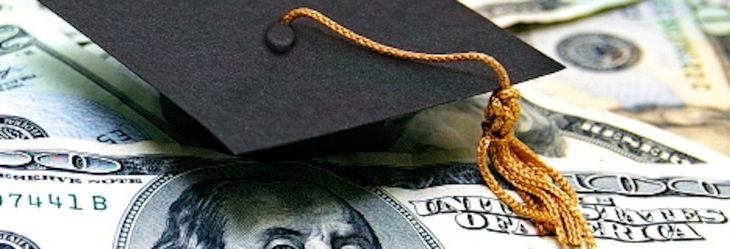Economist Mervin Jebaraj on student debt, medical debt and the growing income imbalance
by June 30, 2019 9:37 am 1,697 views

University of Arkansas economist Mervin Jebaraj has plenty to talk about these days, including debt impact on Arkansans and a growing separation of incomes that he believes threatens democracy.
Appearing on this week’s edition of Talk Business & Politics, Jebaraj said that a plan to eliminate student loan debt – estimated at more than $1.5 trillion – would initially benefit those who already have an advantage. He noted that those with a college degree make about $30,000 more per year than those who don’t. Without passing judgment, Jebaraj said wiping out that debt would give them a further leg up.
“Now the question about wiping out college debt or canceling portions of college debt raises questions about inequality. So as I mentioned if a college graduate is making $30,000 more than somebody that does not have a college degree, they’re already going to have a head start in life with their debt included. And so it’s a matter of, well if you cancel all their debt how much more of a head start are they going to get compared to somebody that does not have a college degree and that does raise issues about inequality within the generation of Millennials as well.”
Jebaraj points out that the Millennial generation – those born between 1981-1996 – have the highest percentage of college attainment of any previous generation.
“About 40% of millennials have a college degree or higher, which is the largest proportion of any generation that we’ve tracked. The previous highest was probably about 29% with the GenX generation. So this generation is far more educated so they’re carrying a lot more debt,” he said.
The UA economist, who leads the Center for Business and Economic Research, said that medical debt affects Arkansans of all ages.
“If you look at the sheer number of GoFundMe pages or any such things about people needing help from their fellow citizens to pay off their medical bills, you’ll see that it is an ongoing concern for a large number of Americans and Arkansans,” Jebaraj said. “The key to note here is that the medical debt or the proportion of people having past due medical debt in Arkansas has gone down since 2012.”
Jebaraj said that’s in part due to the state’s Medicaid expansion, which helped provide coverage to hundreds of thousands of citizens.
“So all that has reduced the number of people that have outstanding medical debt. but they still do have medical debt which much like student loans and all of these other loans does follow them along unless they declare bankruptcy and does affect their spending power their ability to participate wholly in the economy.”
Lastly, Jebaraj spoke about a growing income gap between the richest and poorest Americans that was reported in a Federal Reserve study this week. Jebaraj said income inequality is “dangerous for democracy.” You can watch his full interview below.
